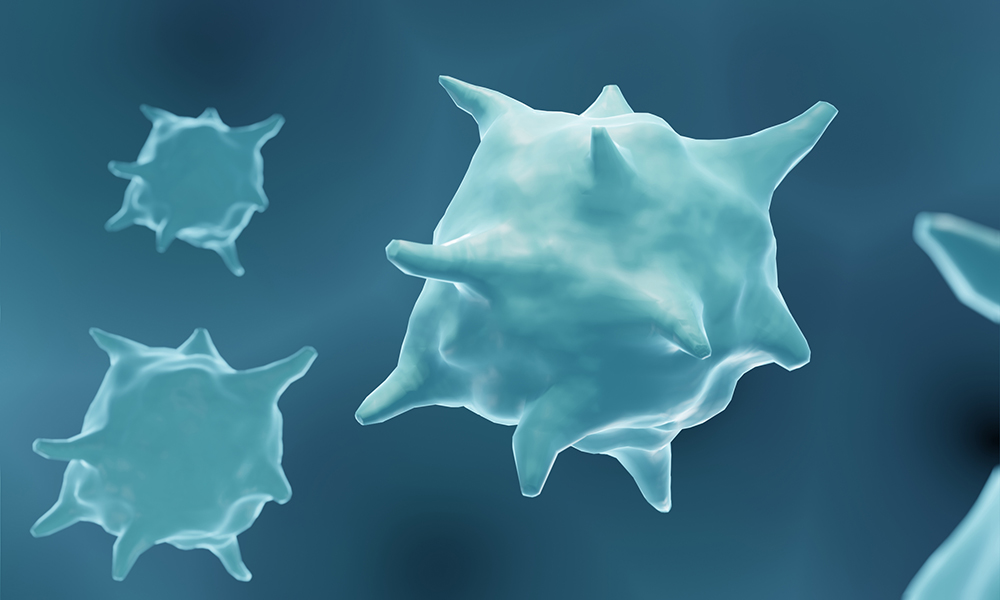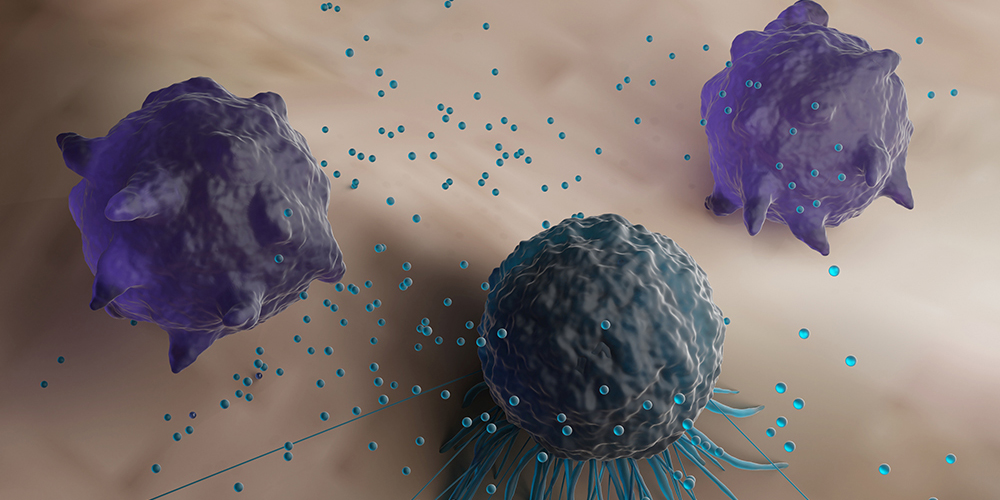
CAR T-cell therapy has completely changed the landscape of treating certain blood cancers. While this type of cancer cell and gene therapy hasn’t yet broken through yet for solid tumors, there are other types of CARs showing potential.
The latest making headlines is CAR macrophage therapy, also called CAR M-cell therapy.
This form of cell therapy is the feature of new research coming out of University of Pennsylvania’s Perelman School of Medicine.
Penn Medicine’s Abramson Cancer Center is one of four centers hosting a phase 1 clinical trial, a first-in-human clinical study, utilizing CAR macrophages for solid tumors.
What are CAR macrophages?
CAR macrophages are similar in many ways to CAR T cells, which is one of the funding focuses of Alliance for Cancer Gene Therapy. Doctors draw blood from cancer patients and isolate primary monocytes, a type of white blood cell helping fight infections and cancer.
Doctors add a chimeric antigen receptor (CAR) to the monocytes to specifically target a cancer biomarker protein. This enhancement helps the monocytes transition into macrophages, which become capable of targeting solid tumors.
The target in the University of Pennsylvania study is human epidermal growth factor receptor 2 (HER2). Many solid tumor cancers are “HER2-positive,” meaning they express this protein. Pancreatic cancer, which is a priority for Alliance for Cancer Gene Therapy cell and gene therapy research and funding, is one such HER2-positive cancer.
Researchers believe CAR macrophages are more capable than CAR T cells of infiltrating and surviving in solid tumors. CAR macrophages work by engulfing cancer cells. They also digest the engulfed cells to stimulate a better immune response, which explains the immunotherapy component of CAR macrophage therapy.
Early data indicates CAR macrophages can treat solid tumors
Researchers at Penn Medicine are excited after seeing early results in the trial. They presented preliminary findings during the annual Society for Immunotherapy of Cancer meeting. The cell and gene therapy in this study, called CT-0508, was safe for patients and had anti-tumor activity.
“Seeing macrophages show high CAR expression, viability, and purity, successfully manufactured from cancer patients that are well tolerated, has us excited to be conducting this trial to help us understand the impact CAR-M cells have on targeting solid tumors.” — Saar Gill, MD, PhD, Scientific Co-Director of the Abramson Cancer Center’s Cell Therapy and Transplant Program
Aside from Penn Medicine, this clinical trial is enrolling patients at the City of Hope (Duarte, Calif.), University of Texas MD Anderson Cancer Center (Houston) and University of North Carolina (Chapel Hill).
What’s next for CAR macrophages?

Carisma Therapeutics, which is affiliated with Penn Medicine, is funding the study. Carisma Therapeutics recently entered a partnership with Moderna to further develop CAR macrophages for cancer treatment.
The collaboration speaks to the potential of CAR-M therapies for solid tumor cancers.
Steven Kelly, President and Chief Executive Officer of Carisma, said the approach is complimentary of each individual company.
“By combining Carisma’s expertise in engineered macrophage biology and Moderna’s pioneering in vivo mRNA delivery technologies, we are excited about the potential of this novel therapeutic approach for treating cancer.” — Steven Kelly, President and Chief Executive Officer of Carisma
While Carisma and others are using macrophages as an immunotherapy, as a natural part of the immune system, macrophages can also be co-opted by cancer to work against immunotherapies.
Brian Brown, PhD, is a Fellow of Alliance for Cancer Gene Therapy and works at Icahn School of Medicine at Mount Sinai Hospital. He is studying turning macrophages off in lung cancer and breast cancer tumors to help clear the way for other T cells to enter and destroy the tumors.
Dr. Brown’s goal is to develop a new CAR specifically killing macrophages in tumors while sparing macrophages in healthy tissue.
History of cell and gene therapy for cancer
Six CAR T-cell therapies are already approved by the U.S. Food and Drug Administration for certain types of leukemia, lymphoma and myeloma. The approvals are for using CAR T cells after multiple lines of therapy failed, but the FDA may soon widen the approval for earlier use.

These approvals have been breakthroughs for cancer cell and gene therapy. The first CAR T-cell therapy was developed at University of Pennsylvania by Carl June, MD, one of the Scientific Advisory Council members for Alliance for Cancer Gene Therapy.
Dr. June is also the Director of the Center for Cellular Immunotherapies at Penn Medicine.
By partnering with Dr. June and other experts in cancer research and testing, ACGT is at the forefront of promoting cancer cell and gene therapy. Your support for our mission may help advance CAR T-cell therapy, CAR macrophages and other types of cell and gene therapy for solid tumors. Please consider donating so we can fund research initiatives like this phase 1 study.
Page sources
- First-in-Human Trial with CAR Macrophages Shows the Cell Therapy May Be Safe, Feasible for Solid Tumors. Perelman School of Medicine at the University of Pennsylvania. Retrieved from: https://www.newswise.com/articles/first-in-human-trial-with-car-macrophages-shows-the-cell-therapy-may-be-safe-feasible-for-solid-tumors?ta=home. Accessed: 01/12/2022.
- CAR-macrophages for the Treatment of HER2 Overexpressing Solid Tumors. Clinicaltrials.gov. Retrieved from: https://clinicaltrials.gov/ct2/show/NCT04660929. Accessed: 01/22/2022.
- Moderna and Carisma Establish Collaboration to Develop in vivo Engineered Chimeric Antigen Receptor Monocytes (CAR-M) for Oncology. PRNewswire. Retrieved from: https://www.prnewswire.com/news-releases/moderna-and-carisma-establish-collaboration-to-develop-in-vivo-engineered-chimeric-antigen-receptor-monocytes-car-m-for-oncology-301456651.html. Accessed: 01/12/2022.



